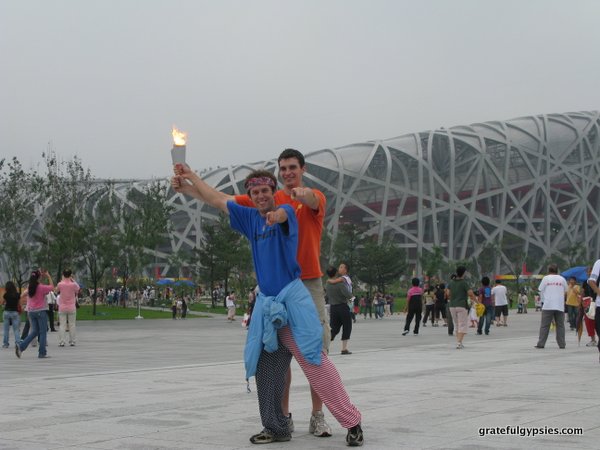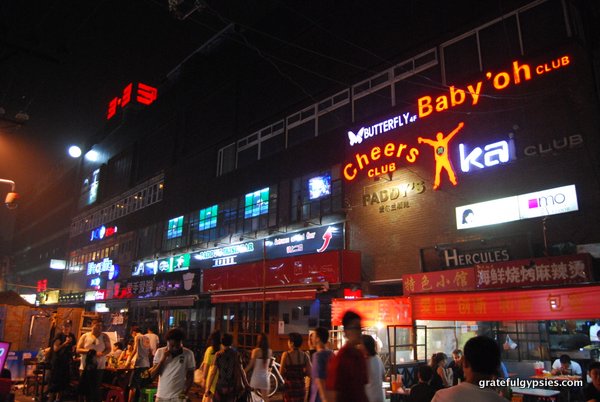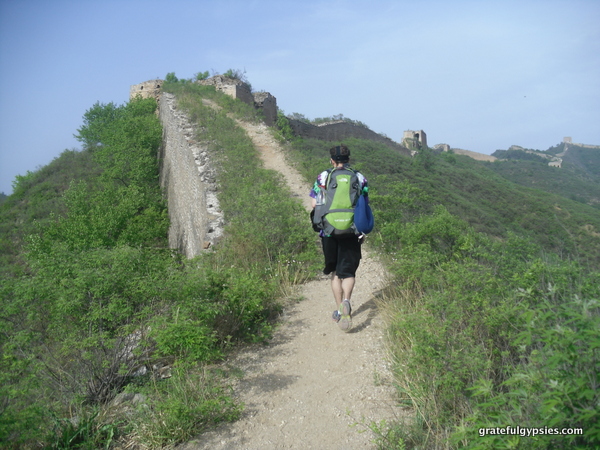7 Awesome Chinese Words That Don’t Translate Posted by sasha on Oct 9, 2019 in Culture, Vocabulary
Have you ever seen that movie “Lost in Translation”? It’s a great movie starring Bill Murray and Scarlett Johansson where the two often experience culture shock (文化冲击 – wén huà chōng jí) in Tokyo. I don’t know about you, but I’ve had plenty of experiences with culture shock. This was especially true during my first few months in China when I barely spoke the language, couldn’t use chopsticks, and had no idea what was on my plate. I was always trying to translate Chinese words directly to English, but you can’t always do that. In this post I’m going to introduce 7 awesome Chinese words that don’t translate very well to English.
1. 加油 (jiā yóu)
On its own, 加油 literally means “add oil,” as in your car is out of gas and you need to fill it up. Just look at the Chinese word for gas station (加油站 – jiā yóu zhàn). In that sense, it’s perfectly fine to translate this word directly. However, 加油 is typically used as a phrase of encouragement. You know, like when you’re cheering on your favorite team.
I think one of the first things I learned how to say in Chinese was “Go USA!” (美国加油 – měi guó jiā yóu) as I first moved there during the Olympics (奥林匹克 – Ào lín pǐ kè). You can also use it to give someone motivation. For example, if you’re feeling down about how difficult it is to learn Chinese, I will give you a big 加油!
2. 山寨 (shān zhài)
Try to translate this next phrase directly and you get “mountain village.” Based on that translation, you probably would never guess that this is most often used these days to describe knock-off goods. If you’ve ever been to a big market in China like the Silk Market (丝绸市场 – sī chóu shì chǎng) in Beijing, you know exactly what I’m talking about. All those bootleg Prada handbags, Nike shoes, and iPhones can all be described as 山寨.
3. 热闹 (rè nào)
This has got to be one of my favorite Chinese words that can’t really be translated to English. Try to do that and you end up with “hot and noisy.” So what do you think this word actually means? Try to guess based on this sentence:
这个晚会很热闹! (zhè ge wǎn huì hěn rè nào)
Do you think that I really mean “This party is very hot and noisy!”? Nope. What I’m trying to say is that this party is lively or bumping. Basically, if something is 热闹 then you don’t want to miss out on it! It makes sense to me, as some of the most fun nights I’ve ever had were actually quite hot and noisy!
4. 慢走 (màn zǒu)
When I first got to China, I did my best to learn the basics. Common Chinese greetings, counting to 100, and how to order food were all top priorities. Whenever I would leave a restaurant, shop, or taxi, I started noticing that people often said 慢走 instead of 再见. If you translate this word to English, you’ll get “walk slow.” I was confused as to why so many people wanted me to walk slowly around Beijing…
That’s because 慢走 is actually used more like “take it easy” or “have a good one.” It’s a less formal way to say goodbye to someone and it’s actually quite common all across China. My lao wai friends and I always got a kick out of speaking Chinglish and telling each other to “walk slowly” when someone was leaving.
5. 吃苦 (chī kǔ)
The direct translation of this next word is “eat bitter.” I’m not talking about biting into a grapefruit with this one, though. It actually means “endure hardship.” Let me give you a little story to see if you can understand this one and how to use it.
One time, we decided to go and camp on the Great Wall. We brought our big backpacks full of tents, sleeping bags, travel pillows, snacks, and even a bottle of wine (葡萄酒 – pú táo jiǔ). After the hike, I was chatting with a nice local man in his restaurant. He was curious as to why we had so much gear with us, so I told him how we hiked up the Wall and set up camp for the night. His response was:
你们外国人真的会吃苦! (nǐ men wài guó rén zhēn de huì chī kǔ)
Basically, what he was saying is that us foreigners can really endure hardships. He explained to me how most Chinese people want to visit a section of the Great Wall with a cable car so they don’t have to hike up a single step. He was impressed that we were willing to carry all of our camping gear up the Great Wall. It was definitely worth it to “eat bitter” for this experience!
6. 撒娇 (sā jiāo)
Put this next word into Google Translate and you’ll get “spoiled.” There’s a bit more to this Chinese word, though. It goes beyond just describing someone who gets whatever they want. Typically, 撒娇 is used to describe a woman who throws a child-like temper-tantrum until she gets what she wants.
When you see that girl making a scene in the middle of a shopping mall because her boyfriend won’t buy her that expensive dress in the window, this is a prime example of 撒娇 in action. In Chinese culture, it’s actually expected for women to be a bit 撒娇 from time to time. This allows their boyfriend/husband to assert his masculinity by doing things like carrying their bags. I always feel bad for those poor saps hauling a huge pink purse around town, but I guess they’re used to it…
7. 东西 (dōng xī)
Finally, we have a word that translates directly as “east west.” On their own, each character represents one of the cardinal directions. When put together, however, it has nothing to do with directions. Any idea what it means? Try guessing from this example:
这是什么东西? (zhè shì shén me dōng xī)
I’ll give you another clue as this one is kind of tricky. I often use that very question when asking about what’s cooking from street food vendors.
Basically, 东西 just means “thing.” It’s a very useful word as you can use it in many instances – 买东西 (buy things), 吃东西 (eat things), and so on.
That does it for this post. I hope you found it interesting! Are there any Chinese words that don’t exactly translate well into English that you have learned? Leave a comment and let us know!

Build vocabulary, practice pronunciation, and more with Transparent Language Online. Available anytime, anywhere, on any device.








Comments:
Sun Tal:
Hen hao! Xie xie ni!
Jia you!!!!